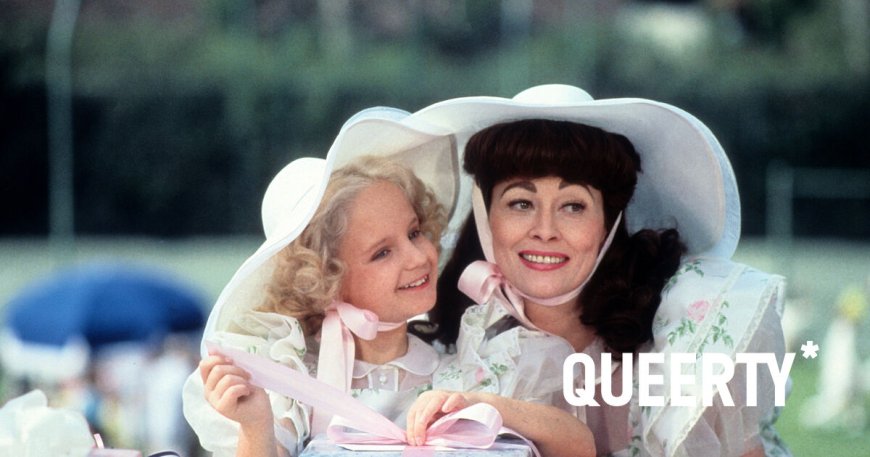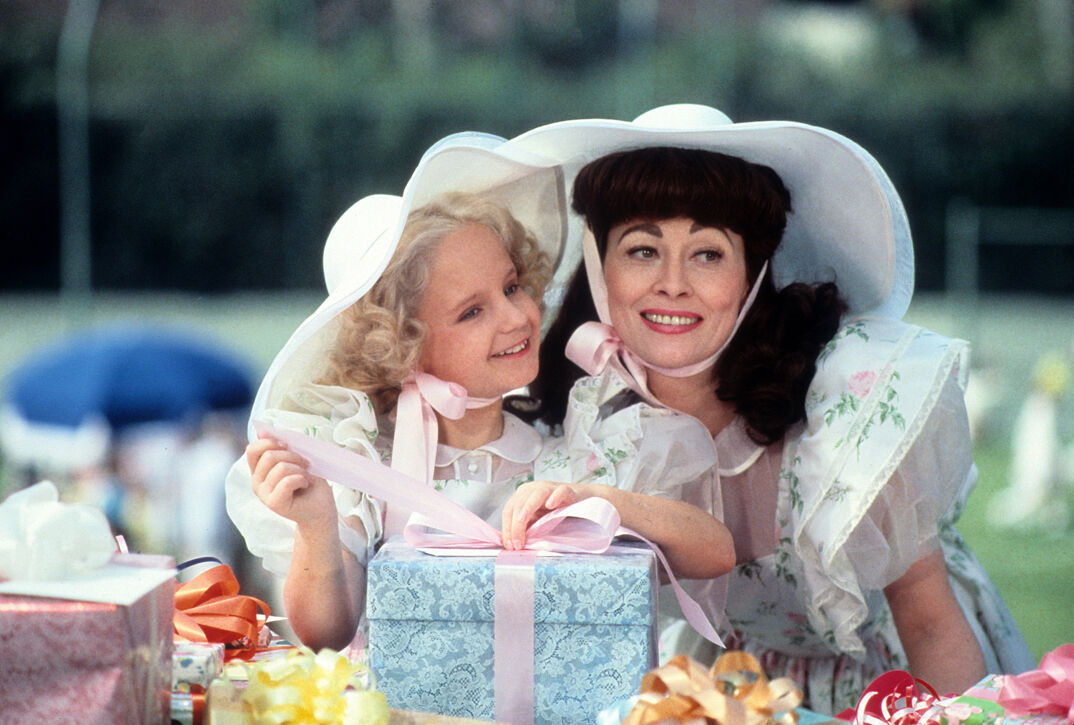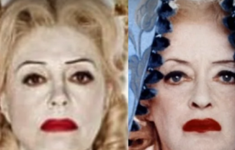‘Mommie Dearest’ had a queer storyline axed & other tea from the ultimate camp classic
There's so much we didn't know about the 1981 camp classic 'Mommie Dearest.'


The 1981 film Mommie Dearest—with Faye Dunaway as abusive glamour goddess and terrible mother Joan Crawford—was supposed to be a prestige film, but it ended up becoming a derided camp classic, simultaneously devoured and mocked by squealing gays. (I’m the only one who actually thinks it’s good. Sue me!)
Those very gays have always found even the trailer a hoot!
How about we take this to the next level?
Subscribe to our newsletter for a refreshing cocktail (or mocktail) of LGBTQ+ entertainment and pop culture, served up with a side of eye-candy.
A new book coming out just in time for Mother’s Day–With Love, Mommie Dearest: The Making of An Unintentional Camp Classic by A. Ashley Hoff—meticulously dissects the making of the film and why it ended up as ill advised as a nice dress on a wire hanger.
Here are a few advance tidbits from the book:
Oscar winner Anne Bancroft was all set to play Joan in the film, but hubby Mel Brooks intervened. According to a source, Brooks told Bancroft, “Look, we’ve all read the book. It’s one thing to picture Crawford chopping down a tree in the backyard. It’s something else when you actually put on the makeup and the costume and do it. The audience’s reaction will be laughter.” Well, no one knows what’s funny more than Mel Brooks. Bancroft didn’t do the film.
Another Oscar winner, Dunaway, came aboard, and though the movie was intended to be an Oscar-caliber project, studio execs noticed that audiences were tittering at the most (melo-) dramatic parts. Mel Brooks was right! Ticket buyers were in hysterics! In response, the studio simply switched gears and marketed it as a comedy! Trumpeted the ads, “No wire hangers…Ever! Mommie Dearest: The biggest mother of them all.” Many were appalled by this trivialization, most of all Dunaway herself. To this day, you don’t want to bring the film up to Faye if you care about your eardrums. As I’m quoted saying in the book, “She feels like another person abused by Joan Crawford.”
Rutanya Alda played Crawford’s assistant Carol Ann (a composite character) and quickly realized that she had to look as dowdy as an IHOP greeter or Dunaway would get her fired. Alda dutifully drabbed down—except for one scene, which she was promptly bumped out of for looking too good—and soon enough noticed that while Carol Ann seemed to age with every frame, Joan looked forever frozen in time.
But in all of her drabness, Carol Ann’s devotion to her employer certainly never diminished. In fact, Alda felt that Carol Ann was secretly in love with Joan. She told director Frank Perry, “If Joan discards her stockings, Carol Ann picks them up and caresses them and might even put them on her own legs later.”
Perry was shocked to hear this—he hadn’t thought of it—but he wasn’t going to turn the movie into a thwarted lesbian love story. “Let’s keep Carol Ann in the closet,” he instructed (along with those wire hangers, I guess). Alda did so, but she played the sapphic longing as subtext!
In the book, some insiders offer words of praise to Dunaway, but late producer Frank Yablans is quoted as observing, “She was a nightmare to work with…She literally became Joan Crawford and I became Christina.” He wasn’t alone in his sentiment. Some members of the camera crew were actually covered in cloth as they did their jobs, so Faye couldn’t see their faces and b*tch them out by name. And legendary costume designer Irene Sharaff walked off the project midway and stated, “I will not work with that drug addict!”
Years later, Rutanya Alda happened to be in Christina Crawford’s home and glanced at the closet in her bedroom. She was stunned by what she saw: Nothing but wire hangers!
Related:
WATCH: The ultimate ‘Feud’ supercut compares show to real-life footage
This supercut is the mother of them all.

 Mark
Mark 








